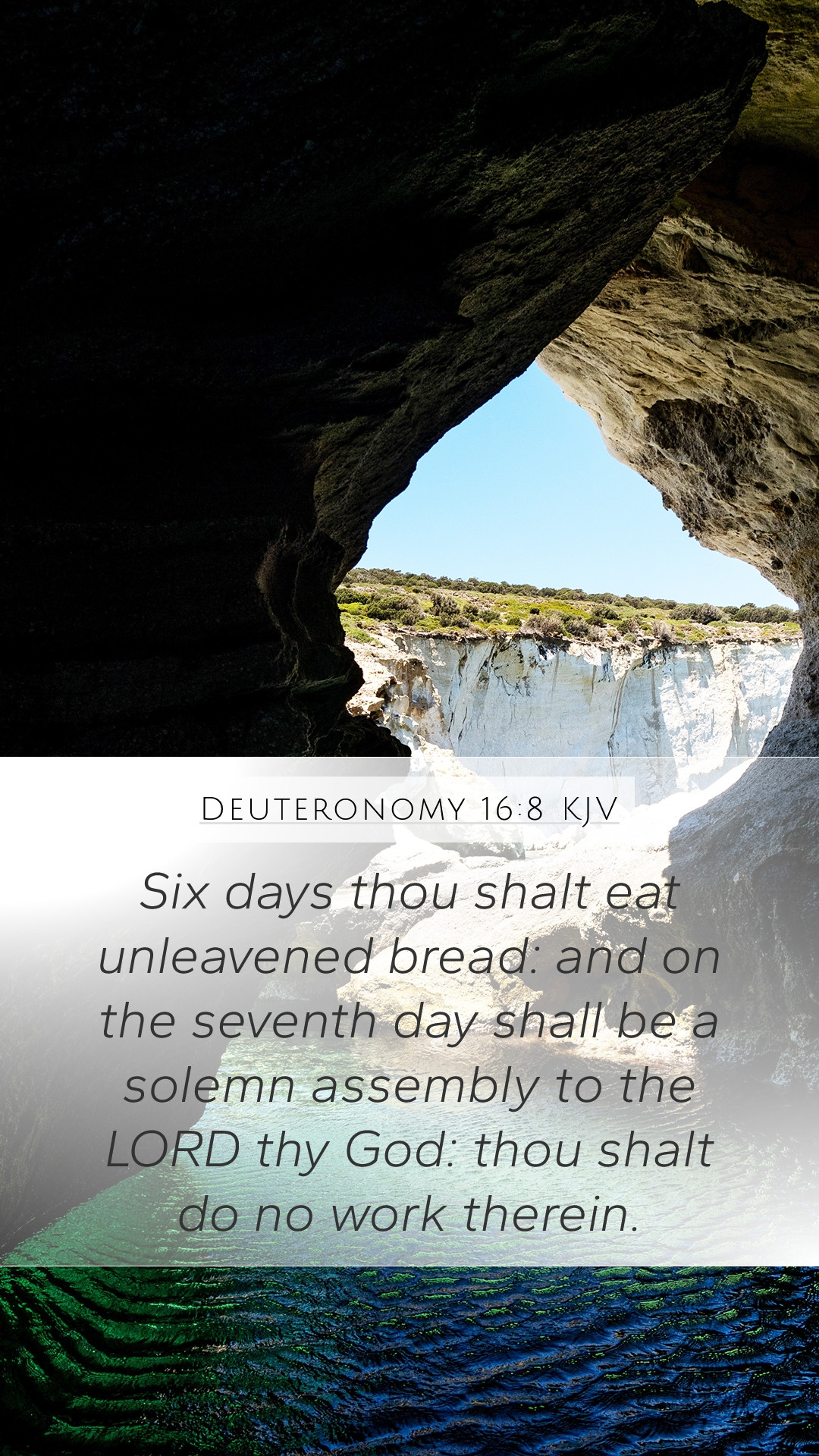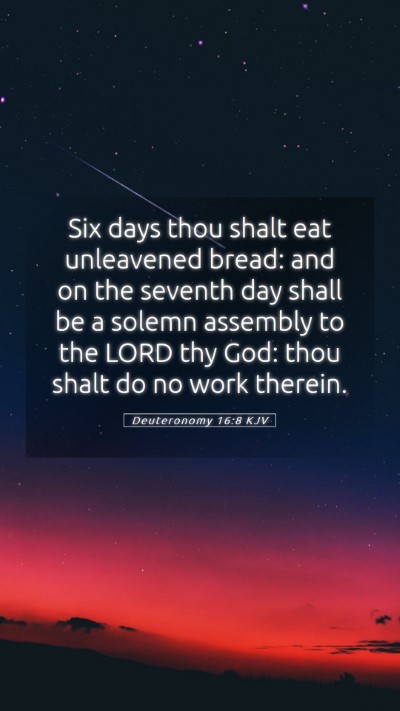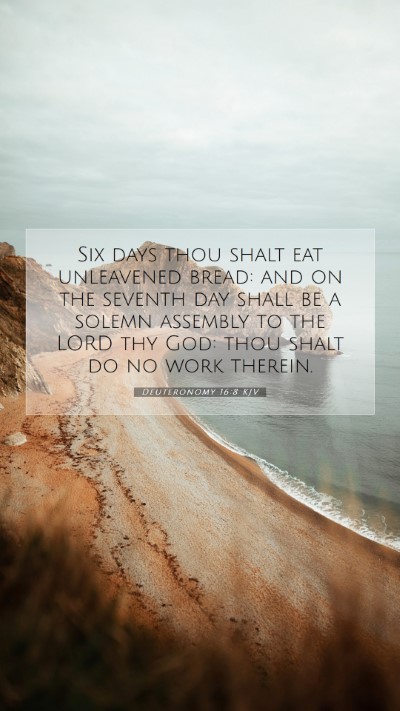Understanding Deuteronomy 16:8
The verse Deuteronomy 16:8 states: "Six days thou shalt eat unleavened bread, and on the seventh day shall be a solemn assembly to the Lord thy God: thou shalt do no work therein." This instruction is part of the broader context of the Feast of Unleavened Bread, a significant festival in the Israelite calendar that commemorates their exodus from Egypt. Understanding this verse involves exploring its deeper meanings and significance through Bible verse interpretations from various public domain commentaries.
Significance of the Verse
In this passage, the Israelites are instructed on how to observe the Feast of Unleavened Bread. The emphasis on eating unleavened bread for six days represents a time of purification and separation from sin, as leaven is often a biblical symbol for sin. On the seventh day, a holy convocation is mandated, which serves as a reminder of the rest that God commanded and the importance of dedicating time to worship.
Bible Verse Commentary Insights
-
Matthew Henry's Commentary:
Matthew Henry emphasizes the importance of the Sabbath in this verse, interpreting the solemn assembly as a critical aspect of worship. He views the commanded day of rest as not just a break from labor but as an opportunity for spiritual reflection and community worship.
-
Albert Barnes' Notes:
Albert Barnes notes the symbolism of unleavened bread during this feast, associating it with a life free from the influence of sin. He argues that the act of consuming unleavened bread serves as an ongoing reminder of the need for purity in the lives of the Israelites.
-
Adam Clarke's Commentary:
Adam Clarke provides a historical perspective, commenting on the actual observance of the feast among the Israelites. He underscores that abstaining from work on the seventh day encourages the faithful to focus on divine worship and community, fostering a deeper sense of spirituality and dependence on God.
Understanding Scripture and Its Application
This verse encourages us to reflect on our schedules and priorities in the context of faith. By delineating specific days for religious observance and rest, it invites believers to consider how they balance work and worship in their lives. This theme resonates through various Bible study insights, prompting questions about our own practices of rest and reflection in a busy world.
Bible Cross References
- Exodus 12:15: Instructions regarding the removal of leaven from homes during the festival.
- Leviticus 23:6-8: A summary of the appointed feasts, including the Feast of Unleavened Bread.
- Deuteronomy 5:12-15: The commandment to observe the Sabbath, highlighting the importance of rest.
Conclusion
Deuteronomy 16:8 serves as a powerful reminder of the importance of structured worship and the rejection of sin in our lives. The command to rest and gather for worship is as relevant today as it was for the Israelites. As we engage in in-depth Bible verse analysis and strive to grasp the meaning of Bible verses, may we find ways to apply these timeless principles in our daily experiences, enhancing our understanding of Scripture and our relationship with God.


